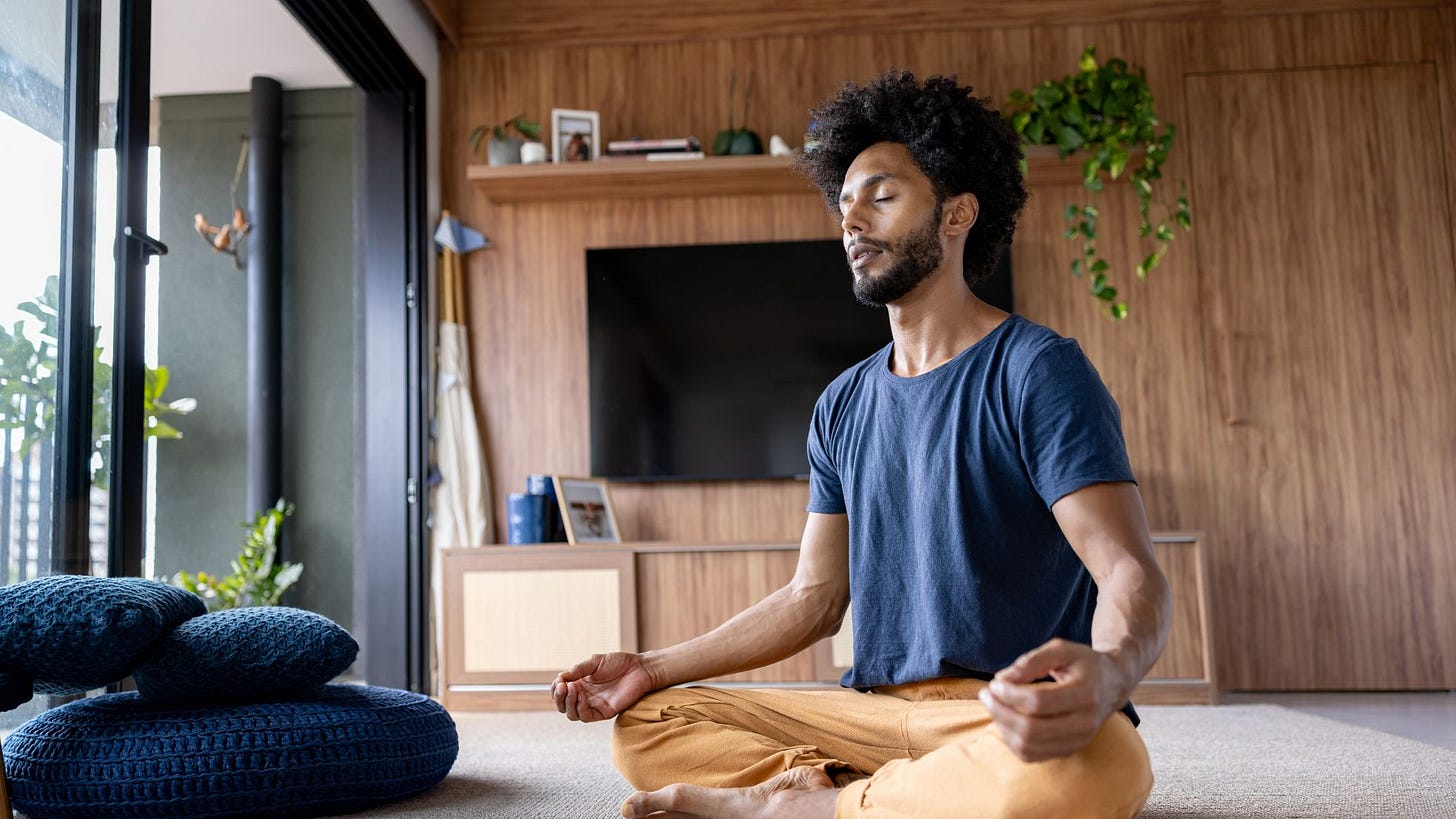At the end of a sharing session about the role of mindfulness in improving our wellbeing, I invited questions or comments from the audience.
One lady raised her hand and said, “Great sharing, I learned a lot. But being mindful sounds… tedious!”
The crowd chuckled, and a few earnestly nodded in agreement.
I understood their sentiments. When I first start learning mindfulness meditation, I found it surprisingly exhausting, and the one key reason is this:
Mindfulness fundamentally requires us to pay attention, and we are just not doing much of that these days.
We are mostly distracted and operate our life in mindless, automatic ways.
We are stressed and tired, and we are desperate to get out of those feelings of distress and exhaustion. The default (and often flawed) strategy is to space out or distract ourselves in an unhealthy, self-destructive manner.
We also assume that being mindful means being relaxed.
Mindfulness is a practice that can help us feel relaxed, but it is called a “practice” for a good reason. We do not practice mindfulness to relax - relaxation is not the main objective here.
We practice paying attention and using our attention in more skillful ways, so that we can stay present.
The reason we want to stay present, is so that our attention doesn’t get stuck in painful memories and imagined catastrophes.
We practice non-judgemental awareness to overcome the emotional biases and negative reactivity we get drawn into so easily.
We practice sustaining this kind of present-moment, non-judgemental attention, so that we are less likely to get pulled back into old, unhelpful behaviours and self-destructive habits.
We train our mind to stay relaxed and yet alert - calmly and vigilantly watching every moment of our experience.
Ideally, in any present moment, we are in the know of everything (inside and outside of us), and not having to engage with anything (unless it makes sense to).
When explained like this, mindfulness doesn’t sound relaxing indeed.
In fact, it may sound like a whole lot of work.
The lady in the audience explained, “I mean… when I’m stressed and tired, I just want to relax and not do anything, you know? Now you’re telling me I have to pay attention to myself when I’m stressed, and even when I’m having a cup of coffee or brushing my teeth. That sounds absolutely tedious…”
I’d say that for most of us just beginning in this practice, mindfulness can feel effortful. Especially when almost everything in our external world discourages us from paying mindful attention to ourselves. Being mindful can feel like we are swimming against the tide at first.
And one of the biggest challenges about practicing mindfulness is remembering to practice it in the first place, says Sharon Salzberg.
It is too easy to forget to pay attention.
Interestingly, while being mindful doesn’t come intuitively for most of us, almost everyone I know who has adopted a more mindful way of life chose to do so because there came a point in their life where they recognised the torment of remaining status quo.
As Tony Robbins has said, change happens when the pain of staying the same is greater than the pain of change.
This is when it becomes clear to us that the benefits of mindful living far outweigh the effort we need to put into the practice.
A little faith and confidence in our understanding of mindfulness can help kickstart a mindful way of life, and the intentional cultivation of patience and discipline will support us in staying the course.
With some consistency in practicing mindfulness, paying attention will become something natural for us (it is, after all, an innate human capacity).
Over time, being mindful will start to feel effortless, because we have trained the mind to be attentive and at ease with every kind of experience that comes our way.
This is when our attention has been honed to be so nimble that it can catch the earliest and subtlest signs of inner turmoil, and remind us of the need to self-regulate and bring ourselves back to emotional balance.
So being mindful may sound tedious, and yes, mindfulness does take work, but I promise it will be the single most useful skill you can develop for your wellbeing.
And when the going gets tough in sustaining mindfulness, please know that not one moment of your practice ever, ever goes to waste.
A few related articles:
And a couple of guided practices:




This picks up on a great point and explores the fear of mindfulness being boring. I will share the link to this in my newsletter tomorrow.